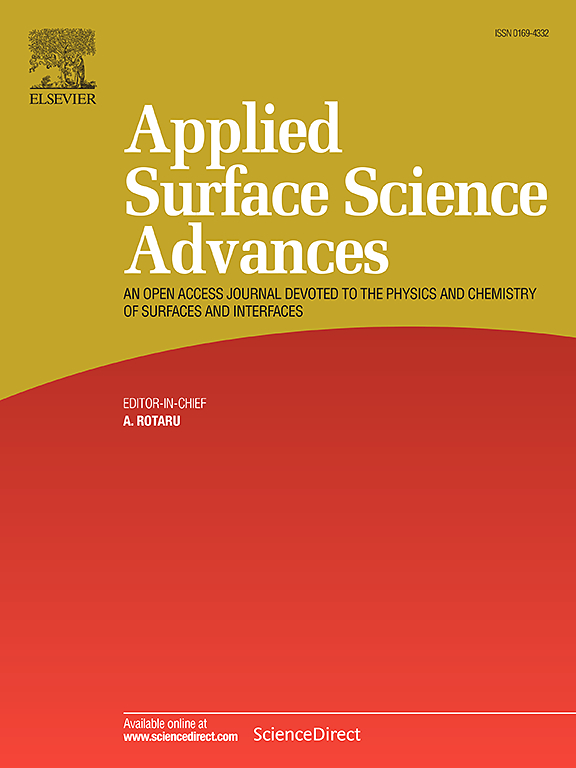Strain-oxygen vacancies coupling in topotactic (La,Sr)Co3-δ thin films
IF 7.5
Q1 CHEMISTRY, PHYSICAL
引用次数: 0
Abstract
Oxygen defect engineering is a widely used approach for tuning physical properties in oxides. Multivalent transition metal oxide La0.7Sr0.3CoO3-δ (LSCO) shows oxygen vacancy-driven metal-to-insulator transition (MIT) due to topotactic phase transition and its high oxygen vacancy tolerance. Here, we introduce strain as a new degree of freedom to study the strain-oxygen vacancy coupling effects and elucidate its impact on the electronic property in oxygen-deficient LSCO epitaxial thin films grown on SrTiO3 (100) single crystal. By combining the experimental results with density functional theory plus U (DFT+U) calculations, we reveal that 2.1 % in-plane tensile strain can stabilize the insulating state of LSCO with a surprisingly low concentration of oxygen vacancies, <0.5 %. This study reveals that the MIT in LSCO is governed by the combination of oxygen vacancies and strain, offering the potential for additional tuning knob of the material's electronic properties.
拓扑结构(La,Sr)Co3-δ 薄膜中的应变-氧空位耦合
氧缺陷工程是调整氧化物物理性质的一种广泛应用的方法。多价过渡金属氧化物 La0.7Sr0.3CoO3-δ(LSCO)因其拓扑相变和对氧空位的高耐受性而显示出氧空位驱动的金属到绝缘体转变(MIT)。在此,我们引入应变作为新的自由度来研究应变-氧空位耦合效应,并阐明其对生长在 SrTiO3 (100) 单晶上的缺氧 LSCO 外延薄膜电子特性的影响。通过将实验结果与密度泛函理论加 U(DFT+U)计算相结合,我们发现 2.1 % 的面内拉伸应变可以稳定 LSCO 的绝缘状态,而氧空位的浓度却低得惊人,仅为 0.5 %。这项研究揭示了 LSCO 中的 MIT 受氧空位和应变的共同作用,为进一步调整材料的电子特性提供了可能性。
本文章由计算机程序翻译,如有差异,请以英文原文为准。
求助全文
约1分钟内获得全文
求助全文

 求助内容:
求助内容: 应助结果提醒方式:
应助结果提醒方式:


